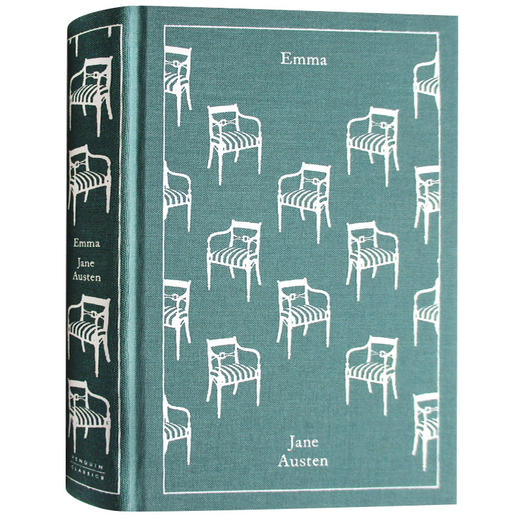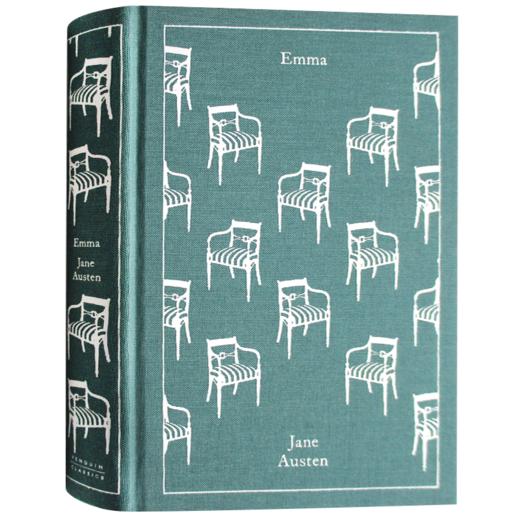Emma 爱玛 英文原版小说 Penguin Clothbound Classics 企鹅布面精装简奥斯汀 进英国文学经典读物英文版书
| 运费: | ¥ 0.00-999.00 |
| 库存: | 5 件 |
商品详情
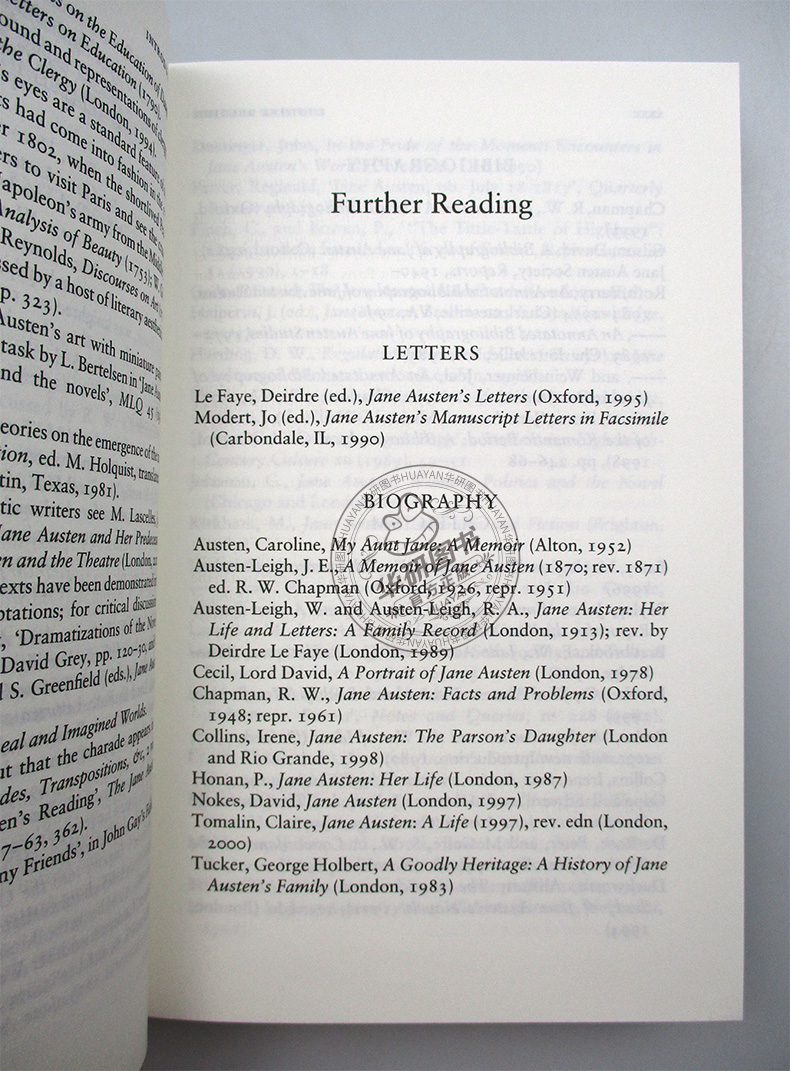
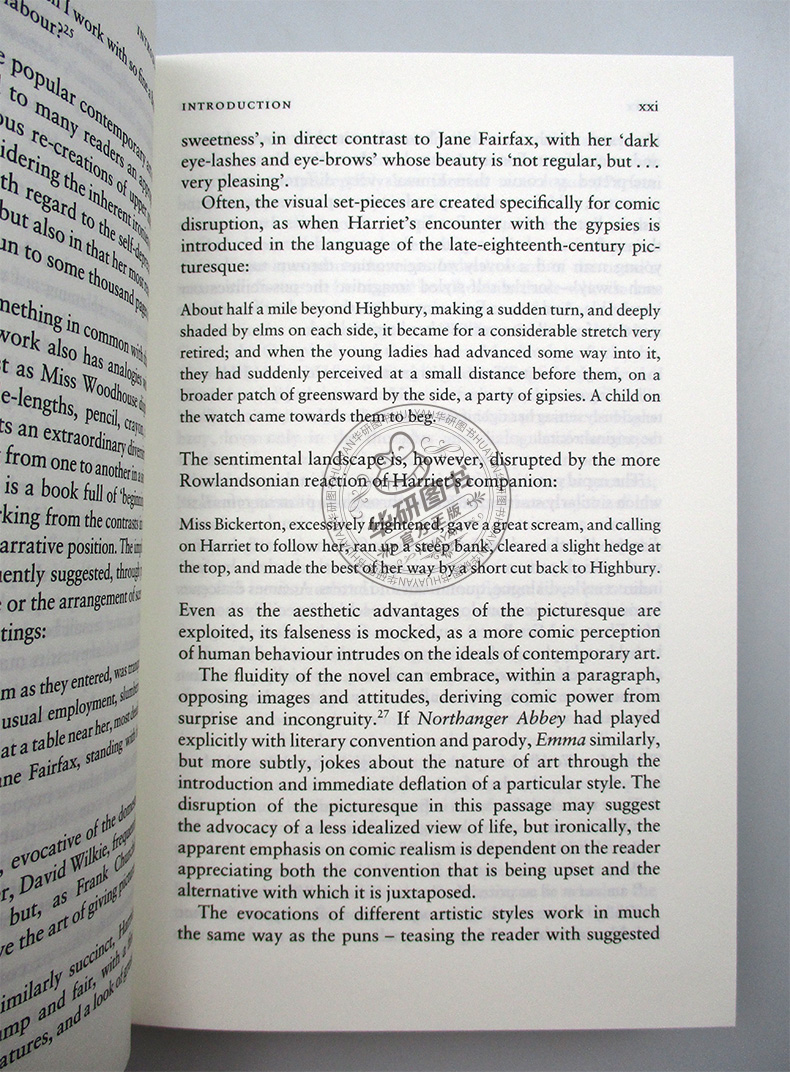
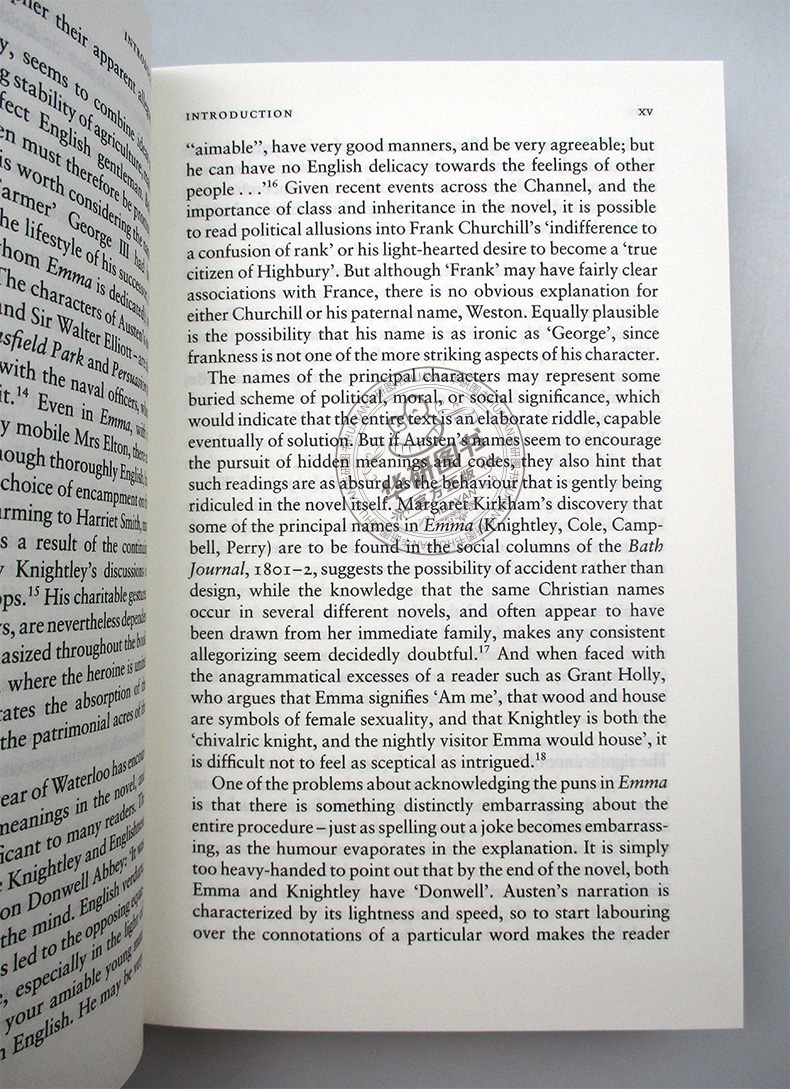
 书名:Emma (Penguin Clothbound Classics)爱玛(布面精装)
书名:Emma (Penguin Clothbound Classics)爱玛(布面精装)
难度:Lexile蓝思阅读指数830L
作者:Jane Austen简·奥斯汀(作者), Fiona Stafford(导言), Coralie Bickford-Smith(插画)
出版社名称:Penguin Classics
出版时间:2010
语种:英文
ISBN:9780141192475
商品尺寸:13.7 x 3.3 x 20.7 cm
包装:布面精装
页数:512 (以实物为准) Emma《爱玛》开始创作于1814年1月,1815年问世。一年多以后,作者简·奥斯汀去世,《爱玛》成了她生前zui后一部与读者见面的小说。虽然本书在中国读者中的影响不如《傲慢与偏见》那样大,但却被认为是奥斯汀作品中艺术上思想上更为成熟的一部!看过了《傲慢与偏见》,更不可错过这本优秀之作!本书适合爱好文学的读者阅读、收藏。
Emma《爱玛》开始创作于1814年1月,1815年问世。一年多以后,作者简·奥斯汀去世,《爱玛》成了她生前zui后一部与读者见面的小说。虽然本书在中国读者中的影响不如《傲慢与偏见》那样大,但却被认为是奥斯汀作品中艺术上思想上更为成熟的一部!看过了《傲慢与偏见》,更不可错过这本优秀之作!本书适合爱好文学的读者阅读、收藏。
推荐理由:
1. Emma《爱玛》是一部优秀的反讽基调格外浓厚的小说,是简·奥斯汀文学爱好者必看作品;
2.喜剧气氛弥漫全书,或许没有哪部小说在喜剧效果方面,能使奥斯汀的Emma《爱玛》相形见绌,不容错过;
3.简单的故事情节、平实的语言描写,却勾画出一幅优美而略带夸张的生动画卷,文学艺术之佳作,不可不看;
4.企鹅经典版本,由牛津大学教授Fiona Stafford写导言,插画师Coralie Bickford-Smith绘制插画,更有助于理解作品;
5.英文原版加布面硬壳封面,收藏或送礼皆佳!
“Jane Austen is my favorite author! ... Shut up in measureless content, I greet her by the name of most kind hostess, while criticism slumbers.” — EM Forster
Part of Penguin’s beautiful hardback Clothbound Classics series, designed by the award-winning Coralie Bickford-Smith, these delectable and collectible editions are bound in high-quality colourful, tactile cloth with foil stamped into the design. Beautiful, clever, rich—and single—Emma Woodhouse is perfectly content with her life and sees no need for either love or marriage. Nothing, however, delights her more than interfering in the romantic lives of others. But when she ignores the warnings of her good friend Mr Knightley and attempts to arrange a suitable match for her protégée Harriet Smith, her carefully laid plans soon unravel and have consequences that she never expected. With its imperfect but charming heroine and its witty and subtle exploration of relationships, Emma is often seen as Jane Austen’s most flawless work. Emma《爱玛》是英国著名作家简·奥斯汀的代表作之一,主要讲述了爱玛的故事。她是一个美丽、聪慧而富有的姑娘,同时也是一位不折不扣的幻想家。她热心关注身边的浪漫故事,却又固执地认为自己永远不会陷入其中。她自作主张为孤女哈丽埃特导演了一次又一次的恋爱。当哈丽埃特误以为自己爱上了地方官奈特利先生时,爱玛才惊觉原来自己也在爱着奈特利先生。这虽与她一开始就宣布的终身不嫁的誓言有悖,但坠入情网的她不得不放弃自己天真的誓言。
Emma《爱玛》是英国著名作家简·奥斯汀的代表作之一,主要讲述了爱玛的故事。她是一个美丽、聪慧而富有的姑娘,同时也是一位不折不扣的幻想家。她热心关注身边的浪漫故事,却又固执地认为自己永远不会陷入其中。她自作主张为孤女哈丽埃特导演了一次又一次的恋爱。当哈丽埃特误以为自己爱上了地方官奈特利先生时,爱玛才惊觉原来自己也在爱着奈特利先生。这虽与她一开始就宣布的终身不嫁的誓言有悖,但坠入情网的她不得不放弃自己天真的誓言。
As daughter of the richest, most important man in the small provincial village of Highbury, Emma Woodhouse is firmly convinced that it is her right—perhaps even her “duty”—to arrange the lives of others. Considered by most critics to be Austen’s most technically brilliant achievement, “Emma” sparkles with ironic insights into self-deception, self-discovery, and the interplay of love and power. 
简·奥斯汀(1775~1817),19世纪英国著名女性小说家。生于英国小乡镇史蒂文顿的一个牧师家庭,几乎从未接受过正规教育,但由于家庭文学空气熏陶而成为著名作家。其作品主要描绘她在狭小生活圈子里所熟悉的中产阶级的家庭生活,青年男女的恋爱婚姻及其心态,具有观察细致,人物刻画惟妙惟肖,评论尖刻等艺术特色。20岁左右开始创作,共发表6部小说:《理智与情感》《傲慢与偏见》《曼斯菲尔德庄园》《爱玛》《诺桑觉寺》《劝导》。
Jane Austen, the daughter of a clergyman, was born in Hampshire in 1775, and later lived in Bath and the village of Chawton. As a child and teenager, she wrote brilliantly witty stories for her family’s amusement, as well as a novella, Lady Susan. Her first published novel was Sense and Sensibility, which appeared in 1811 and was soon followed by Pride and Prejudice, Mansfield Park and Emma. Austen died in 1817, and Persuasion and Northanger Abbey were published posthumously in 1818. Chapter I
Chapter I
Emma Woodhouse, handsome, clever, and rich, with a comfortable home and happy disposition, seemed to unite some of the best blessings of existence; and had lived nearly twenty-one years in the world with very little to distress or vex her.
She was the youngest of the two daughters of a most affectionate, indulgent father, and had, in consequence of her sister’s marriage, been mistress of his house from a very early period. Her mother had died too long ago for her to have more than an indistinct remembrance of her caresses, and her place had been supplied by an excellent woman as governess, who had fallen little short of a mother in affection.
Sixteen years had Miss Taylor been in Mr. Woodhouse’s family, less as a governess than a friend, very fond of both daughters, but particularly of Emma. Between them it was more the intimacy of sisters. Even before Miss Taylor had ceased to hold the nominal office of governess, the mildness of her temper had hardly allowed her to impose any restraint; and the shadow of authority being now long passed away, they had been living together as friend and friend very mutually attached, and Emma doing just what she liked; highly esteeming Miss Taylor’s judgment, but directed chiefly by her own.
The real evils indeed of Emma’s situation were the power of having rather too much her own way, and a disposition to think a little too well of herself; these were the disadvantages which threatened alloy to her many enjoyments. The danger, however, was at present so unperceived, that they did not by any means rank as misfortunes with her.
Sorrow came—a gentle sorrow—but not at all in the shape of any disagreeable consciousness.—Miss Taylor married. It was Miss Taylor’s loss which first brought grief. It was on the wedding-day of this beloved friend that Emma first sat in mournful thought of any continuance. The wedding over and the bride-people gone, her father and herself were left to dine together, with no prospect of a third to cheer a long evening. Her father composed himself to sleep after dinner, as usual, and she had then only to sit and think of what she had lost.
The event had every promise of happiness for her friend. Mr. Weston was a man of unexceptionable character, easy fortune, suitable age, and pleasant manners; and there was some satisfaction in considering with what self-denying, generous friendship she had always wished and promoted the match; but it was a black morning’s work for her. The want of Miss Taylor would be felt every hour of every day. She recalled her past kindness—the kindness, the affection of sixteen years—how she had taught and how she had played with her from five years old—how she had devoted all her powers to attach and amuse her in health—and how nursed her through the various illnesses of childhood. A large debt of gratitude was owing here; but the intercourse of the last seven years, the equal footing and perfect unreserve which had soon followed Isabella’s marriage on their being left to each other, was yet a dearer, tenderer recollection. It had been a friend and companion such as few possessed, intelligent, well-informed, useful, gentle, knowing all the ways of the family, interested in all its concerns, and peculiarly interested in herself, in every pleasure, every scheme of her’s;—one to whom she could speak every thought as it arose, and who had such an affection for her as could never find fault.
How was she to bear the change?—It was true that her friend was going only half a mile from them; but Emma was aware that great must be the difference between a Mrs. Weston only half a mile from them, and a Miss Taylor in the house; and with all her advantages, natural and domestic, she was now in great danger of suffering from intellectual solitude. She dearly loved her father, but he was no companion for her. He could not meet her in conversation, rational or playful.
The evil of the actual disparity in their ages (and Mr. Woodhouse had not married early) was much increased by his constitution and habits; for having been a valetudinarian all his life, without activity of mind or body, he was a much older man in ways than in years; and though everywhere beloved for the friendliness of his heart and his amiable temper, his talents could not have recommended him at any time.
Her sister, though comparatively but little removed by matrimony, being settled in London, only sixteen miles off, was much beyond her daily reach; and many a long October and November evening must be struggled through at Hartfield, before Christmas brought the next visit from Isabella and her husband and their little children to fill the house and give her pleasant society again.
Highbury, the large and populous village almost amounting to a town, to which Hartfield, in spite of its separate lawn and shrubberies and name, did really belong, afforded her no equals. The Woodhouses were first in consequence there. All looked up to them. She had many acquaintance in the place, for her father was universally civil, but not one among them who could be accepted in lieu of Miss Taylor for even half a day. It was a melancholy change; and Emma could not but sigh over it and wish for impossible things, till her father awoke, and made it necessary to be cheerful. His spirits required support. He was a nervous man, easily depressed; fond of every body that he was used to, and hating to part with them; hating change of every kind. Matrimony, as the origin of change, was always disagreeable; and he was by no means yet reconciled to his own daughter’s marrying, nor could ever speak of her but with compassion, though it had been entirely a match of affection, when he was now obliged to part with Miss Taylor too; and from his habits of gentle selfishness and of being never able to suppose that other people could feel differently from himself, he was very much disposed to think Miss Taylor had done as sad a thing for herself as for them, and would have been a great deal happier if she had spent all the rest of her life at Hartfield. Emma smiled and chatted as cheerfully as she could, to keep him from such thoughts; but when tea came, it was impossible for him not to say exactly as he had said at dinner,
“Poor Miss Taylor!—I wish she were here again. What a pity it is that Mr. Weston ever thought of her!”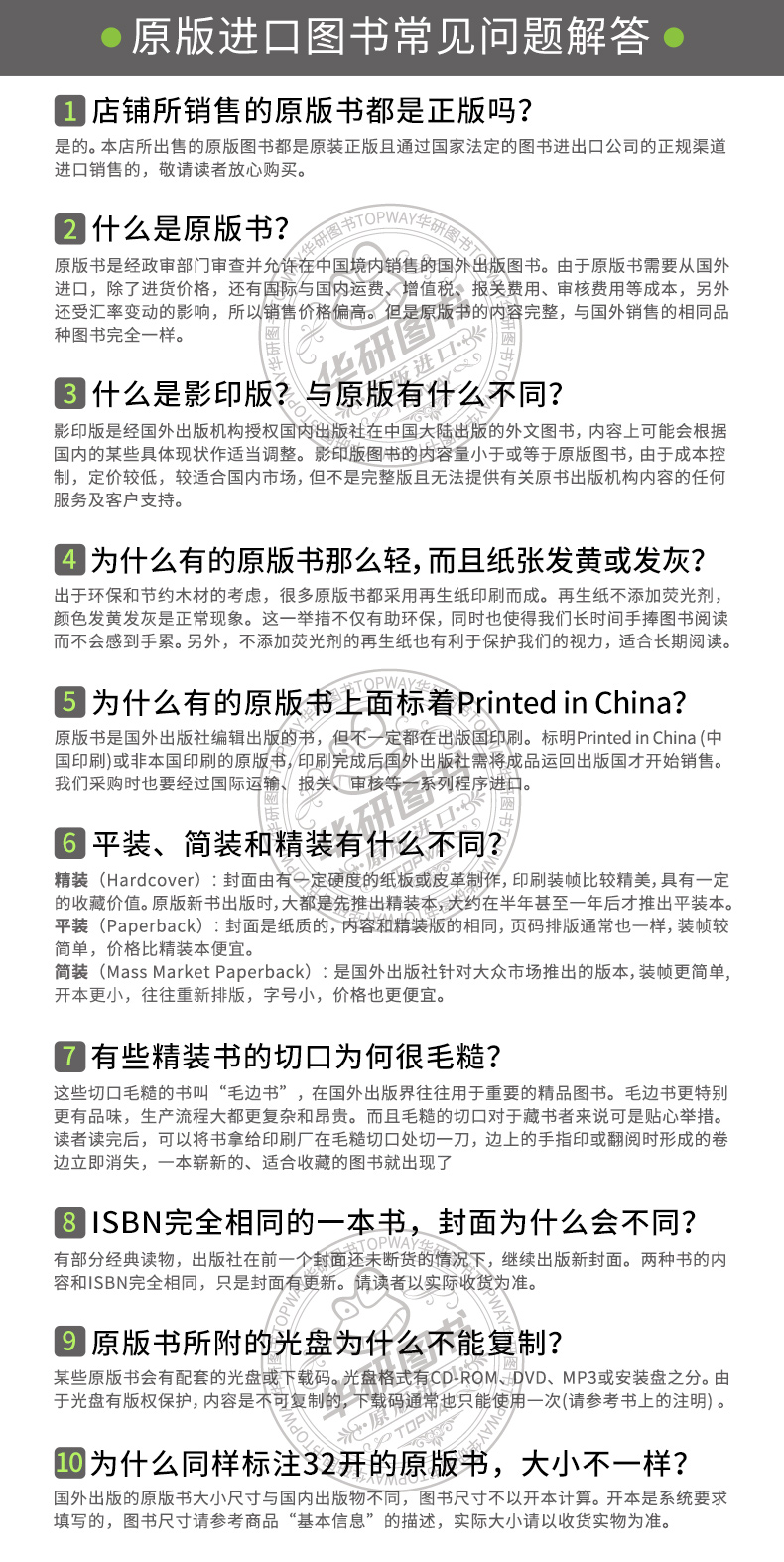
- 报佳音
- 主内书籍文创礼品
- 扫描二维码,访问我们的微信店铺
